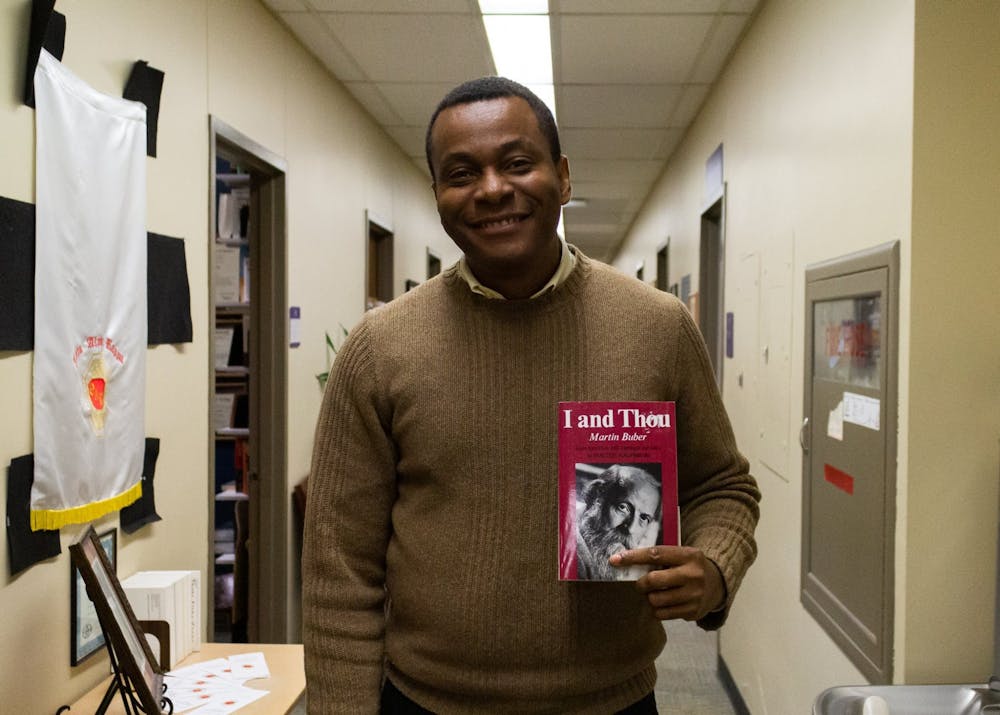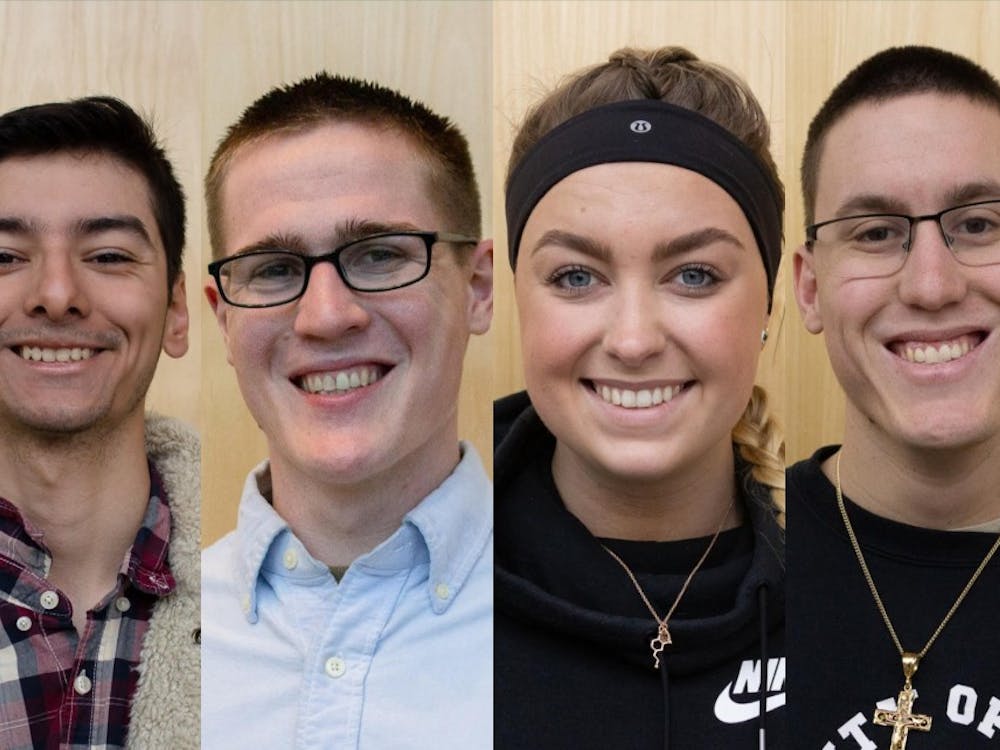As University of Portland students dive into the new semester, it’s easy to get lost in the hundreds of pages of academic readings per week. In your rare free time, however, you might do some reading for fun or curiosity. Reading has the power to influence people’s lives in many different ways, from a calm pastime to helping decide a major or changing one’s entire view of human nature.
The Beacon spoke to eight UP professors about their favorite book and how it has affected them.
This is the first installment of a 4-part series.
Simon Aihiokhai, Theology professor
I and Thou, Martin Buber
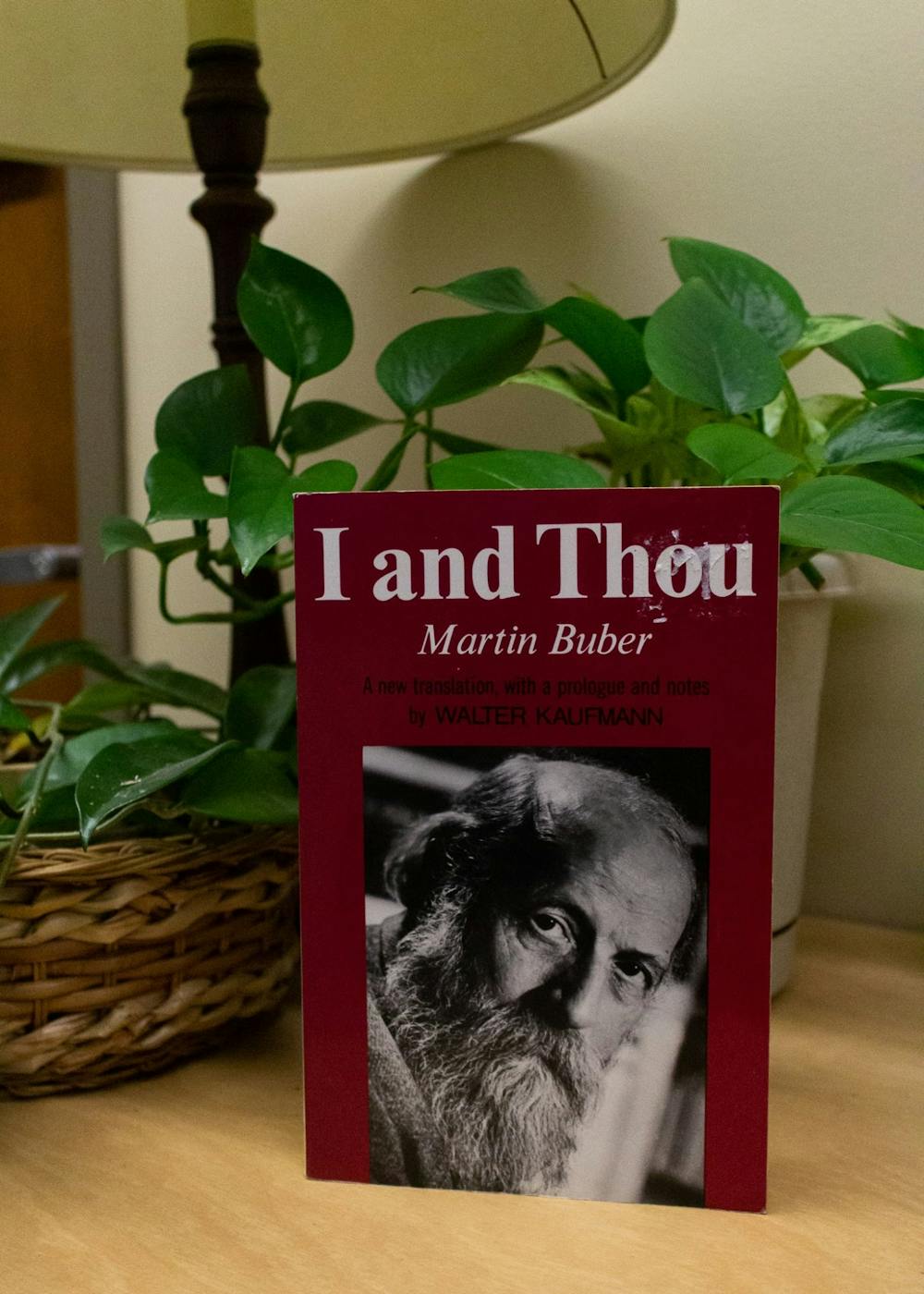
"I And Thou" depicts two types of universal relationships - the "I-Thou," and the "I-It."
When Aihiokhai was 20 years old, he took a class on Martin Buber while studying philosophy in Nigeria. He said that he finds it ironic that he was reading about how to be a human from a Jewish philosopher while living in Africa, since Buber’s philosophy is far different from Nigerian culture.
In the book, Buber describes two relationships: the narcissistic I-it relationships, and the more compassionate I-Thou relationships. In the I-It humans get what they want and direct others to serve them, like our relationship with food. The I and Thou relationship, in comparison, forces people to think about the needs of others.
“I and Thou is the relationship of mystics and distance,” Aihiokhai said. “Letting the other be who they are and meeting the other where they are. And respecting what the other has to offer as they chose to offer, without judging.”
According to Aihiokhai, in the religious community in Nigeria that he grew up in, he learned to judge things as “good” and “bad.” This book came as a great surprise to his values and brought a change in his relationships.
“As I went through life, it began to dawn on me that was the best gift I ever received in education,” Aihiokhai said. “That I could apply it to every aspect of life. In friendships, relationships. Why do we go to war? Because the other country is not who we want them to be. Even in teaching I now realize that I could also apply it, do I want the students to be like me? Or do I meet them where they are in their education and journey with them.”
Aihiokhai’s theology specialization is about dialogue among religions. He uses the philosophy of Buber as a way for religions to come together.
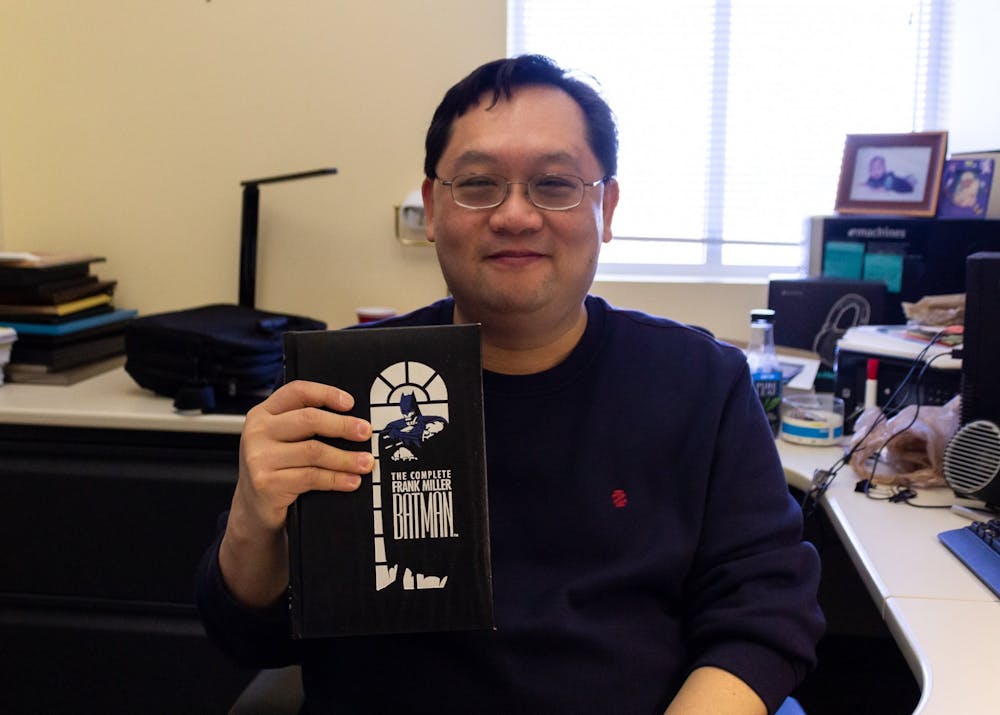
After watching the new "Joker" film, Operations and Technology Management professor Wilfred Wu reread the comic "The Dark Knight Returns".
Wilfred Wu, Operation Technology Management professor
The Dark Knight Returns, Frank Miller
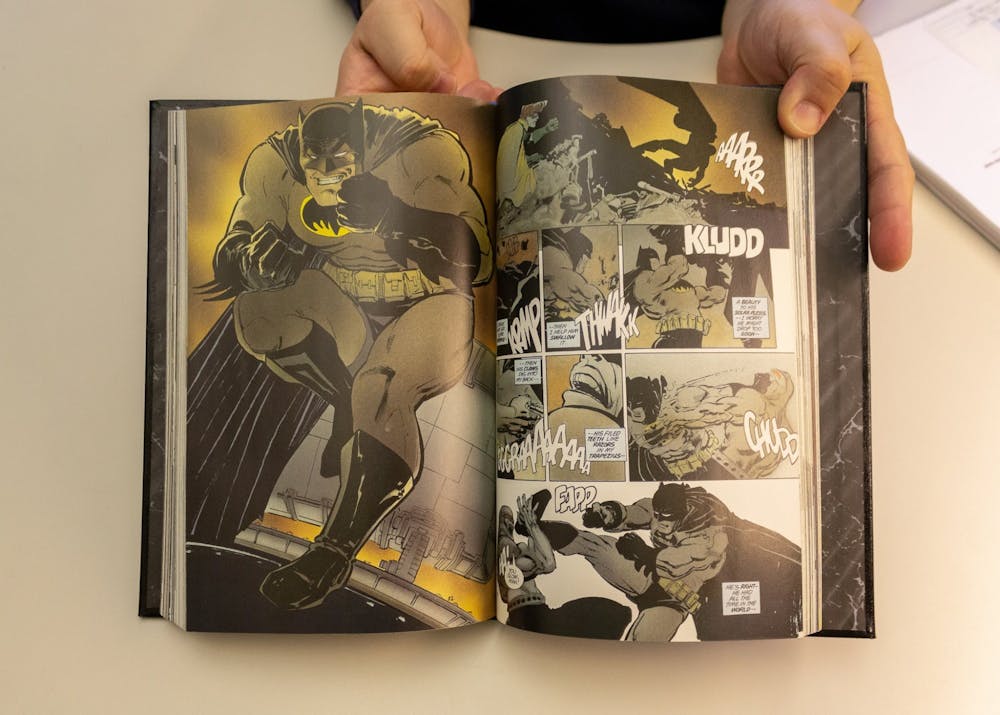
A spread from "The Dark Knight Returns" by Frank Miller shows Batman in a fight against the Mutant Leader.
Wu recently re-read Miller’s graphic novel after watching the recent “Joker” film. Many of the scenes in this film reminded him of The Dark Knight Returns. As a teenager, Wu read many comic books, but says this one struck him in particular.
According to Wu, this book has darker themes than any other comic book of its time, and caused the perception of the graphic novel industry to change from childrens’ books to a mass appeal.
“I like it because it is something different, and it adds reality to the stories that many other comics don’t have. It was written in 1986 when Regan was president, and he is in the comic, directing superman to do things,” Wu said. “It tries to make things hyperrealistic by adding a superhero world into our world.”
Since the book was published, many DC superhero films have dominated the public eye that draw particularly from “The Dark Knight Returns.” For Wu, it is cool to see how many people are watching these movies, including his own children.
Although Wu would not be able to teach this book in his own classes about technology and business management, he thinks it would be a great contribution to a modern American history class.
Fiona O’Brien is a reporter for The Beacon. She can be reached at obrienf21@up.edu.



